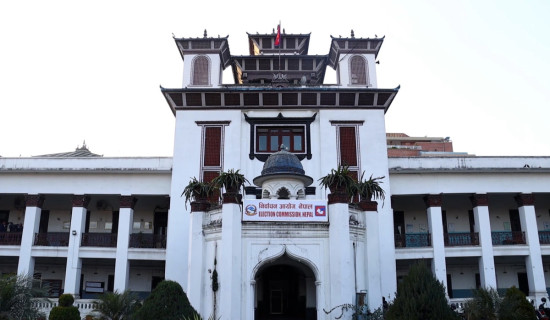- Sunday, 8 February 2026
Protect Rights Of Old Persons
While the world’s population is ageing, it is one of most remarkable social and cultural transformation of the 21st century. The dynamics of population ageing has potentially wider socio-economic, cultural and political implications in terms of family structures, intergenerational bond, accessing basic services such as safe housing, transportation, public systems of health care, and social protection services in the low-income countries. Population ageing in Asia and the Pacific is particularly rapid, given the decline in fertility and mortality over recent years. In 2023, an estimated 697 million older persons (60 years or over) are residing in Asia and the Pacific, representing about 60 per cent of all older persons in the world. They represent about 14.8 per cent of the region’s population. By 2050, the number of older persons in the region is projected to increase to 1.3 billion or 25.9 per cent of the population.
Considering wider socio-cultural impacts of ageing on societies, there are critical policy and strategic issues to manage the rapid demographic shift in terms of ensuring adequate protection mechanisms for older persons. The recent COVID-19 pandemic and other natural disasters such as earthquake and floods have raised the increasing needs for social protection for older persons. More importantly, social discrimination based on older age, lack of social protection and access to health services, lack of autonomy and participation in decision-making, and freedom from violence, neglect and abuse are the critical challenges faced by majority of the older persons in low-income countries. As a ground reality, the existing social protection services are not sufficient to ensure dignified lives of older persons who are particularly poor and socially marginalised in the communities.
Landmark progress
Over the years, we experience that people are living longer because of better nutrition, sanitation, health care, education and economic well-being. The demographic drivers of population ageing are interestingly experienced but overlooked in most cases. Evidence suggests that declining fertility and increasing longevity are the key drivers of population ageing. This year’s International Day of Older Persons has focused on the theme of “Fulfilling the Promises of the Universal Declaration of Human Rights for Older Persons: Across Generations”. Looking at the history, the United Nations General Assembly adopted the Universal Declaration on Human Rights, a monumental document in the history of human rights. This is a major landmark progress in terms of respecting the fundamental human rights across the globe. The overall aim is to ensure that all persons, including all older persons, fully enjoy their human rights and fundamental freedoms.
More notably, the Madrid International Plan of Action on Ageing and the Political Declaration adopted at the Second World Assembly on Ageing in April 2002 marked a turning point in how the world addresses the key critical challenges of population ageing in the societies. This importantly highlighted an ambitious and bold agenda for addressing the wider issues of ageing in the societies. More importantly, some of the pertinent issues such as older persons and development, advancing health and well-being into old age, and ensuring enabling and supportive environments have been the key priorities for actions.
Evidence suggests that we need to reorient the ways in which the societies perceive, interact with and care for their older persons. In the changing context, it is crucial that governments mainstream ageing issues in their social policies and human rights at all levels. On the other hand, there are global initiatives to enhance overall health and social well-being of older persons. For instance, the United Nations Decade of Healthy Ageing (2021–2030) is a global collaboration, aligned with the Sustainable Development Goals (SDGs) has been instrumental in improving the sustainable livelihoods of older persons, their families, and the communities in which they live.
There are a couple of remarkable initiatives to further build age-friendly environments, combat ageism, strengthen integrated and long-term care. Access to quality care is necessary for older persons to maintain their functional ability, enjoy basic human rights and live with dignity. The role of WHO has been instrumental in providing technical assistance to national governments in designing and implementing integrated model of care by producing evidence, guidance and resource packages. However, these initiatives need to be further strengthened for continuity and sustainability of the services.
Meaningful participation
With the support from HelpAge International, there are notable contributions of civil society to protect and promote the rights of older persons in the country. For example, Nepal Participatory Action Network (NEPAN), for the first time, conducted a participatory research to explore the situation of older persons across the country. This provided an evidence and knowledge base for public awareness, advocacy and capacity building in the area of older persons and their dignified lives in the national context. Later, civil society organisations such as Ageing Nepal and few others have started a range of community-based activities to empower older persons for their income earning opportunities, social protection, health care, and sustainable livelihoods in a rights-based approach.
Interestingly, civil society has been more prominent to work together with the governments in the recent years in policy advocacy, mainstreaming ageing in development plans, implementation of social protection services, capacity building and generating evidence for actions. Therefore, meaningful participation of older persons is critical as they are agents of change as well as service beneficiaries. Needless to say, their voices must be heard, their dignity and autonomy respected, and their human rights protected and promoted.
(PhD in global health, Bhandari writes on health and development issues.)
















